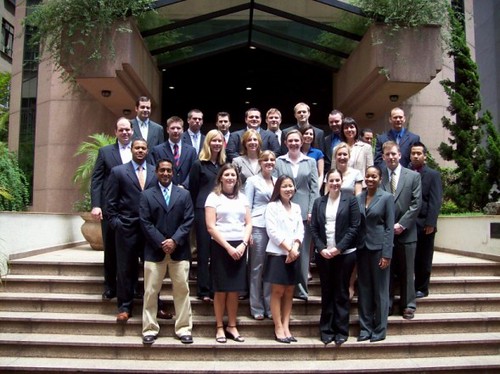The Brazilian samba school: Delivering high performance with happiness!
Many foreign corporations dealing with Brazilians complain about low productivity, poor communication, high turnover and lack of engagement. Yet, at samba schools, Brazilian members show the opposite, and for no pay too!
Online course
This is an online course in English addressed to business people who work with Brazilians.
To show what is missing at corporate management Alfredo Behrens has researched and interviewed at samba schools. He has elicited the people management practices and leadership styles that can be implemented at corporations to achieve higher profitability with greater happiness. Much of the course is drawn from subtitled interviews with genuine samba school members and can be easily transferred to corporations, like recruiting, selection and promotion techniques, even compensation ones, though samba schools do not pay members.
High performance with happiness can be achieved in Brazil following the samba school method of management!
The self-paced course is designed for executives. It consists of 14 lectures but they are short: 7 minutes each. They can be fitted between phone calls if necessary. Altogether we are talking of just over one and a half hours of lectures. Each lecture comes with additional reading material and quizzes to measure the participants’ understanding. The course will remain free, for sure, until November 14, when all 14 lectures will have been completed. At present only the wrap-up lecture is missing. But you can fully benefit for free from the rest, 13 out of 14 lectures! That is all there is between you and success!Management the Brazilian Way can be found here. Once there you may click on This course and you will be taken to the course´s landing page, enrol free, no credit card asked, and start learning.
In below video, sponsored by the Dutch Brazilian Chamber of Commerce you will get an idea of the course content.
About Alfredo Behrens
Alfredo Behrens holds a PhD by the University of Cambridge, has taught at Princeton University and is an expert on Cross-Cultural Management and Leadership, which he lectures on at FIA, the São Paulo business school. His book ‘Culture and Management in the Americas’ is published by Stanford University Press. Another book: ‘Shooting Heroes and Rewarding Cowards’ is praised by Suzy Welch, the former Editor-In-Chief of Harvard Business Review as ‘Fascinating and Innovative’.
For more information, contact: Alfredo Behrens, e-mail: ab@alfredobehrens.com Brazil land line phone: +55 11 38280554 or mobile +5511991339779





